#Charlotte Zwerin
Text

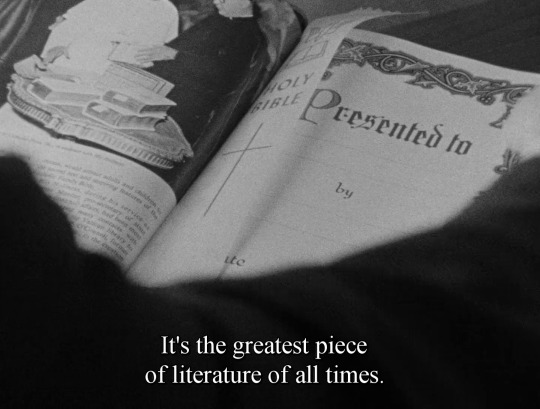
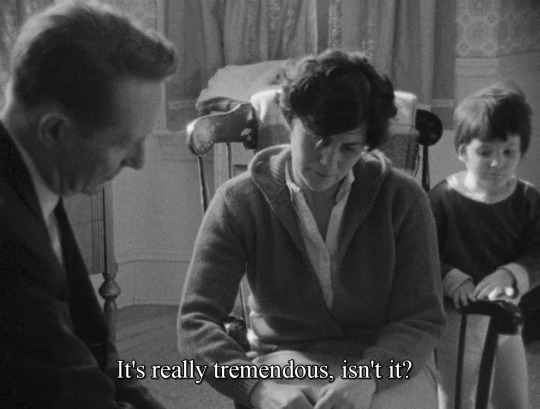
Salesman (Albert Maysles, David Maysles, Charlotte Zwerin, 1969)
#Salesman#Albert Maysles#Maysles#David Maysles#Charlotte Zwerin#documentary#religion#Maysles Brothers#1969#quote#literature#world#bible#black and white
87 notes
·
View notes
Text
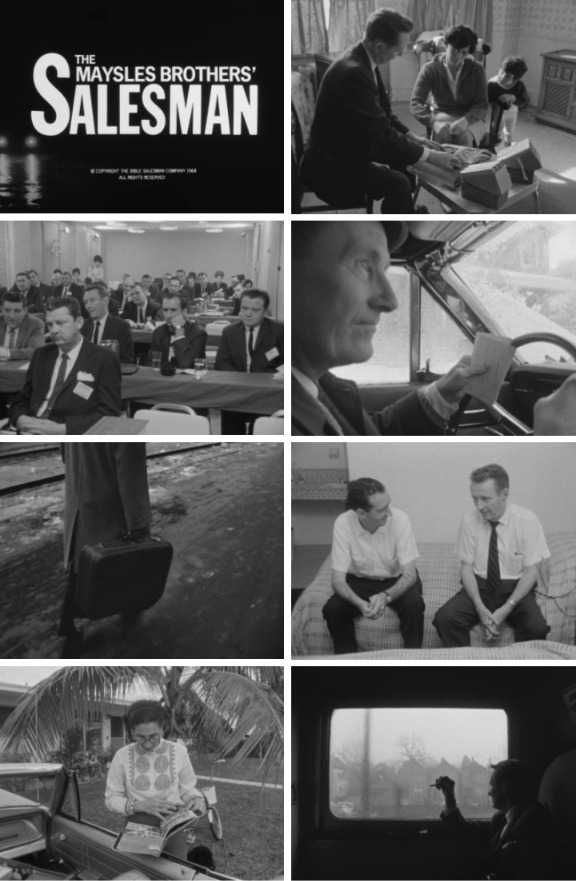
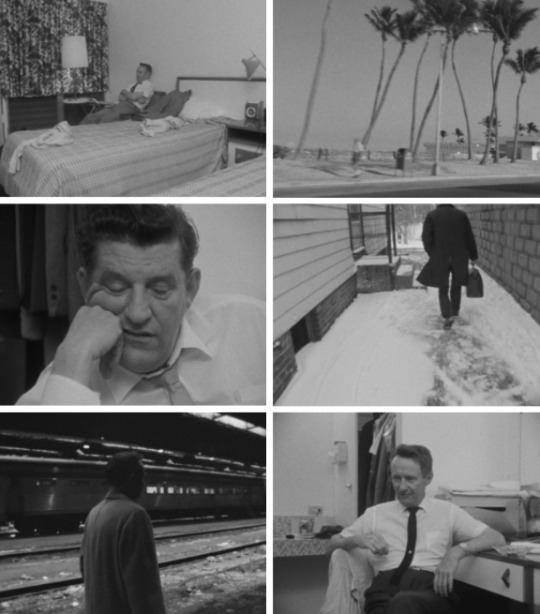
Salesman (1969)
6 notes
·
View notes
Text
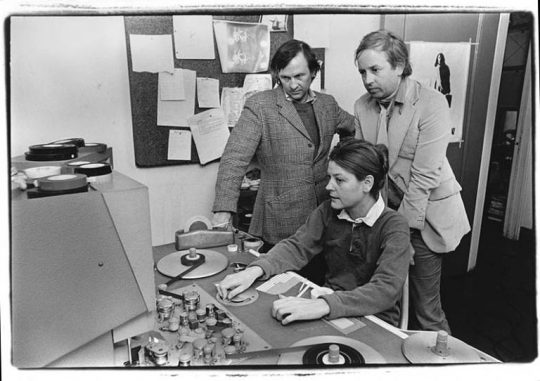
Charlotte Zwerin, August 15, 1931 – January 22, 2004.
Editing Gimme Shelter (1970) with Albert and David Maysles.
9 notes
·
View notes
Photo
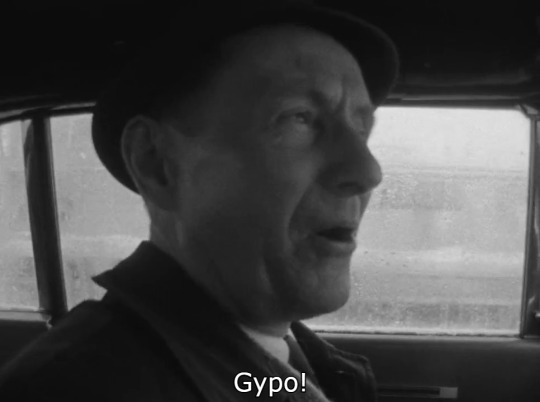
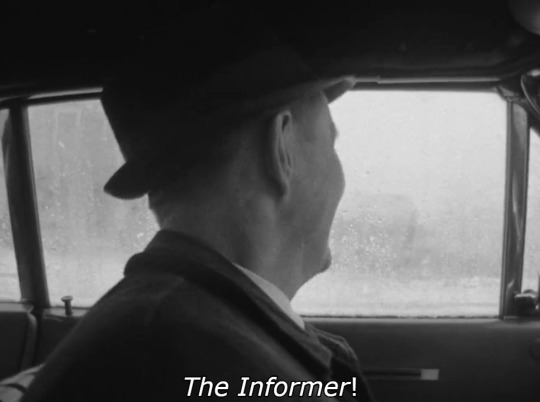
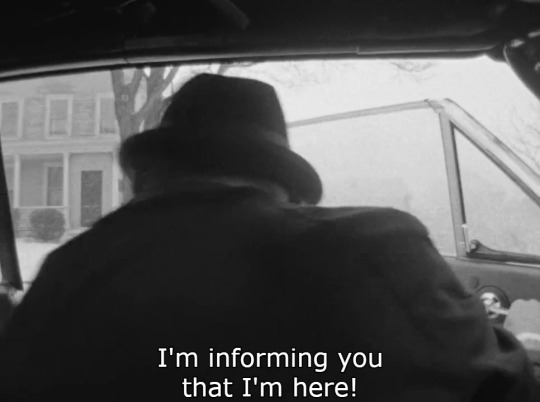
Salesman(1969)
#film#documentary#salesman#1969#albert maysles#david maysles#charlotte zwerin#john ford#the informer#60s#vintage#...
3 notes
·
View notes
Text
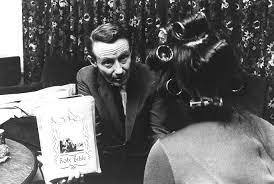
3 October 2023
Film: SALESMAN (d. Albert & David Maysles and Charlotte Zwerin, 1969, USA)
Forum: Doc Films Format: DCP
Observations: First trip to Doc since July. Maybe 30 in the audience total for this show, a direct-cinema landmark that follows the lives of Bible salesmen travelling door-to-door (in Boston and Florida). It's a window into the lives of the would-be customers (mostly low-income ... many exhibit excellent sales-resistance skills, but some get snared) and also into the difficult lives that these men lead on the road, struggling to score one more sale to stay on their boss's good side.
#cinema#movie#film#american film#Salesman#maysles brothers#albert maysles#david maysles#Charlotte Zwerin#1969
0 notes
Photo

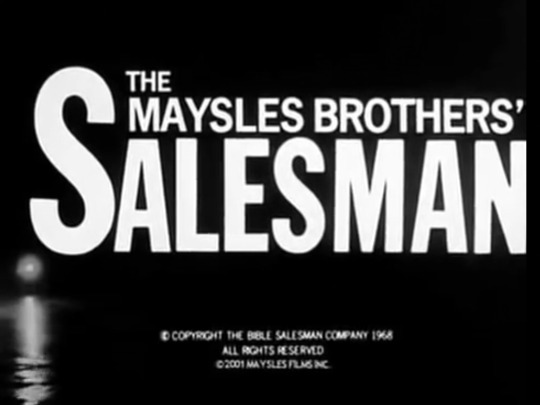
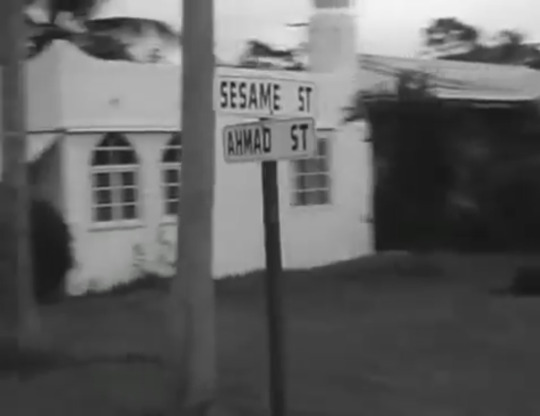
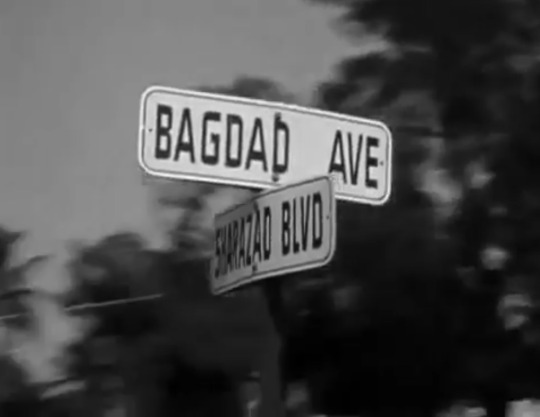
https://youtu.be/K-utsxnUfXM
*
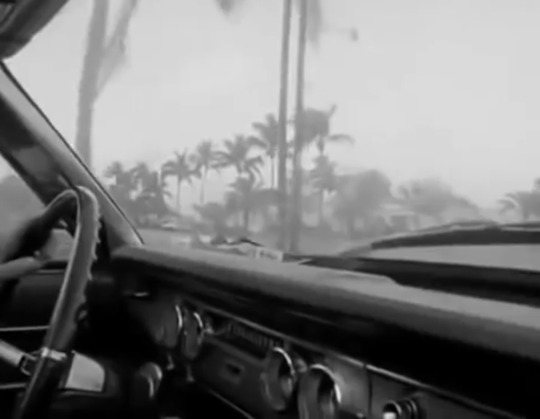





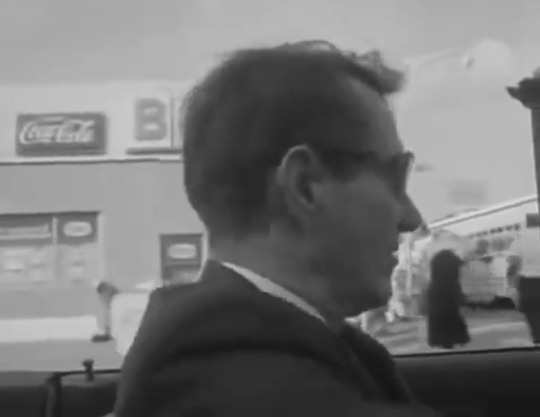
#salesman#albert maysles#david maysles#charlotte zwerin#documentary#selling bibles#1969#fountainebleu#miami beach#miami#bagdad avenue#sesame street#death of a salesman#arthur miller#1949#the matrix
0 notes
Photo
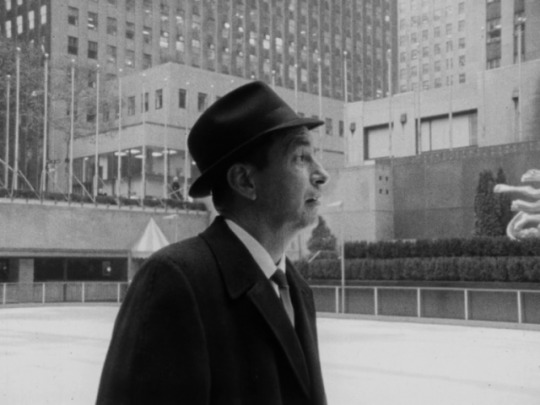
A Visit with Truman Capote (1966) Albert Maysles, David Maysles, Charlotte Zwerin.
0 notes
Photo

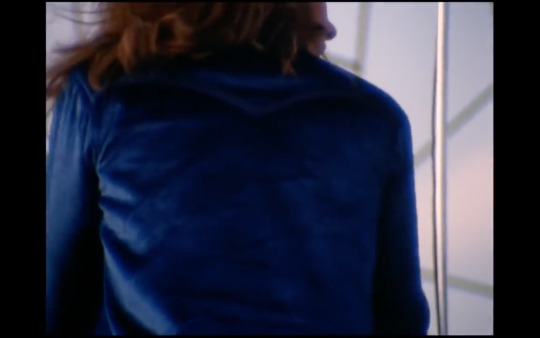
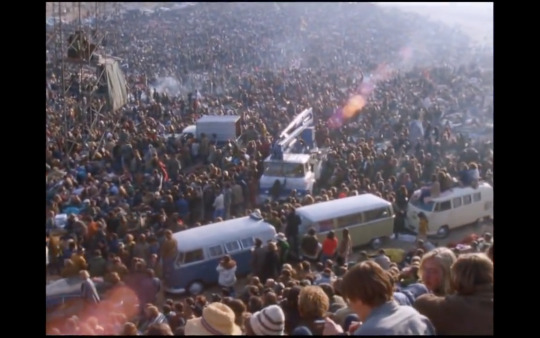
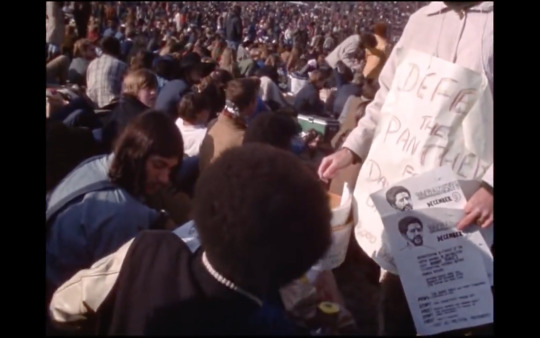
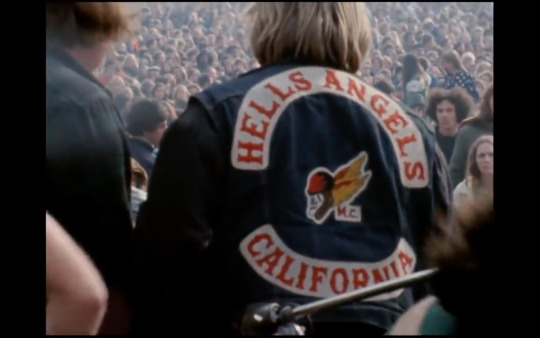
Gimme Shelter (1970) Albert and David Maysles, Charlotte Zwerin
169 notes
·
View notes
Text
The safety net was gone and so she was truant because she didn’t have any place to go. No home. After her Mother died. she never cried about circumstances because it wasn’t gonna make things different. It wasn’t gonna change what was. So the best she could do was to pick up from there and go on, knowing that we all have something that happened over which we had absolutely no control. And knowing the people who loved her would love her anyway.
June Jordon in interview by Charlotte Zwerin published in a PBS American Masters podcast. Nina Bernstein and June Norton on Ella Fitzgerald
The Ella Fitzgerald Charitable Foundation
I hadn't known about Ella Fitzgerald's traumatic hardship in her teens. But I did have a sense that she really cared about children. I remembered she had done fundraising for children in Pittsburgh and stumbled on this podcast searching for some record of that. What a beautiful person she was.
7 notes
·
View notes
Text
Determining the "top" documentaries of all time is inherently subjective, as different viewers prioritize different aspects of filmmaking and storytelling. However, there are certain documentaries that have garnered widespread acclaim for their technical prowess, impactful narratives, and ability to spark important conversations. Here are 20 highly regarded documentaries, each with a brief description and why they stand out:
Man with a Movie Camera (1929): This silent experimental documentary by Dziga Vertov offers a captivating glimpse into daily life in the Soviet Union of the late 1920s. Its innovative camerawork and editing techniques continue to influence filmmakers today.
Image of Man with a Movie Camera (1929) documentary poster Opens in a new window
www.imdb.com
Man with a Movie Camera (1929) documentary poster
Night and Fog (1955): Alain Resnais's haunting exploration of the Nazi concentration camps is a powerful testament to the resilience of the human spirit in the face of unimaginable horror.
Image of Night and Fog (1955) documentary poster Opens in a new window
www.imdb.com
Night and Fog (1955) documentary poster
Shoah (1985): Claude Lanzmann's epic nine-hour oral history of the Holocaust features interviews with survivors, perpetrators, and bystanders, offering a comprehensive and unflinching look at this dark chapter in human history.
Image of Shoah (1985) documentary poster Opens in a new window
www.imdb.com
Shoah (1985) documentary poster
Grey Gardens (1976): The Maysles brothers' intimate portrait of two reclusive relatives of Jacqueline Kennedy Onassis offers a fascinating and sometimes uncomfortable look at wealth, family dysfunction, and aging.
Image of Grey Gardens (1976) documentary poster Opens in a new window
en.wikipedia.org
Grey Gardens (1976) documentary poster
Vernon, Florida (1981): Errol Morris's pioneering work in cinéma vérité uses innovative interview techniques to create a complex and moving portrait of a small-town community.
Image of Vernon, Florida (1981) documentary poster Opens in a new window
www.imdb.com
Vernon, Florida (1981) documentary poster
Harlan County, USA (1976): Barbara Kopple's Oscar-winning documentary chronicles a brutal coal miners' strike in Kentucky, highlighting the struggles of working-class Americans and the power of collective action.
Image of Harlan County, USA (1976) documentary poster Opens in a new window
en.wikipedia.org
Harlan County, USA (1976) documentary poster
Salesman (1969): The Maysles brothers follow four door-to-door Bible salesmen in Boston, capturing their hopes, dreams, and frustrations with humor and empathy.
Image of Salesman (1969) documentary poster Opens in a new window
www.imdb.com
Salesman (1969) documentary poster
Gimme Shelter (1970): David Maysles, Albert Maysles, Charlotte Zwerin, and Penelope Pecs document the Rolling Stones' disastrous 1969 concert at Altamont, offering a chilling look at the dark side of the counterculture movement.
Image of Gimme Shelter (1970) documentary poster Opens in a new window
www.imdb.com
Gimme Shelter (1970) documentary poster
Jiro Dreams of Sushi (2011): David Gelb's captivating portrait of Jiro Ono, a 90-year-old sushi chef considered a living legend, explores the dedication, passion, and artistry required to achieve mastery in any field.
Image of Jiro Dreams of Sushi (2011) documentary poster Opens in a new window
www.imdb.com
Jiro Dreams of Sushi (2011) documentary poster
Man on Wire (2008): James Marsh's Oscar-winning documentary tells the incredible story of Philippe Petit, a French high-wire artist who walked between the Twin Towers of the World Trade Center in 1974.
Image of Man on Wire (2008) documentary poster Opens in a new window
www.impawards.com
Man on Wire (2008) documentary poster
The Act of Killing (2012): Joshua Oppenheimer's disturbing but essential documentary explores the Indonesian genocide of 1965-66 through interviews with the killers themselves, confronting viewers with the depths of human cruelty.
Image of Act of Killing (2012) documentary poster Opens in a new window
www.filmaffinity.com
Act of Killing (2012) documentary poster
Amy (2015): Asif Kapadia's Oscar-winning documentary paints a tragic portrait of singer Amy Winehouse, using archival footage and interviews to explore her rise to fame, struggles with addiction, and untimely death.
Image of Amy (2015) documentary poster Opens in a new window
www.prints4u.net
Amy (2015) documentary poster
O.J.: Made in America (2016): Ezra Edelman's eight-hour epic examines the life and trial of O.J. Simpson, offering a nuanced look at race, class, and the American justice system.
Image of O.J.: Made in America (2016) documentary poster Opens in a new window
www.imdb.com
O.J.: Made in America (2016) documentary poster
Free Solo (2018): Jimmy Chin and Elizabeth Chai Vasarhelyi's Oscar-winning documentary follows Alex Honnold as he attempts to become the first person to free solo climb El Capitan, a 3,000-foot rock wall in Yosemite National Park.
Citizenfour (2014): Laura Poitras's gripping chronicle of Edward Snowden's leaks on NSA surveillance programs sparked global conversations about privacy and government overreach.
Image of Citizenfour (2014) documentary poster Opens in a new window
www.imdb.com
Citizenfour (2014) documentary poster
My Octopus Teacher (2020): Craig Foster's Oscar-winning documentary details his unlikely friendship with an octopus in a South African kelp forest, offering a powerful exploration of the interconnectedness of nature.
Image of My Octopus Teacher (2020) documentary poster Opens in a new window
medium.com
My Octopus Teacher (2020) documentary poster
Fyre Festival: The Greatest Party That Never Happened (2017): Hulu's documentary unravels the disastrous Fyre Festival scam, offering a cautionary tale about social media hype, influencer culture, and the dark side of entrepreneurial ambition.
Image of Fyre Festival: The Greatest Party That Never Happened (2017) documentary poster Opens in a new window
www.imdb.com
Fyre Festival: The Greatest Party That Never Happened (2017) documentary poster
Won't You Be My Neighbor? (2018): Morgan Neville's heartwarming documentary explores the life and legacy of Fred Rogers, the beloved host of children's television series "Mister Rogers' Neighborhood," reminding viewers of the importance of kindness and compassion.
Image of Won't You Be My Neighbor? (2018) documentary poster Opens in a new window
www.imdb.com
Won't You Be My Neighbor? (2018) documentary poster
American Movie (1999): Mark Borchardt's hilarious and touching portrait of his friend's chaotic attempts to make a low-budget horror film offers a unique and endearing look at the struggles and triumphs of independent filmmaking.
Image of American Movie (1999) documentary poster Opens in a new window
www.imdb.com
American Movie (1999) documentary poster
Bowling for Columbine (2002): Michael Moore's controversial yet thought-provoking documentary examines gun violence in the United States, sparking debate and raising awareness about social issues contributing to gun violence.
Image of Bowling for Columbine (2002) documentary poster Opens in a new window
www.imdb.com
Bowling for Columbine (2002) documentary poster
Bonus:
Paris is Burning (1990): Jennie Livingston's groundbreaking documentary explores the lives and struggles of Black and Latinx LGBTQ+ youth in New York City's ball scene, offering a poignant look at self-expression, race, and marginalization.
Image of Paris is Burning (1990) documentary poster Opens in a new window
www.imdb.com
Paris is Burning (1990) documentary poster
The Fog of War: Eleven Lessons from the Life of Robert S. McNamara (2003): Errol Morris's Oscar-winning interview with former US Secretary of Defense Robert McNamara confronts him with the human cost of the Vietnam War, forcing viewers to grapple with complex questions about power, responsibility, and the nature of war.
Image of Fog of War: Eleven Lessons from the Life of Robert S. McNamara (2003) documentary poster Opens in a new window
www.imdb.com
Fog of War: Eleven Lessons from the Life of Robert S. McNamara (2003) documentary poster
Remember, this list is just a starting point, and there are countless other incredible documentaries worth exploring. Consider your own interests and priorities when choosing documentaries to watch, and enjoy the unique power of documentary filmmaking to inform, inspire, and challenge your perspective.

0 notes
Text
WWII Impacted Cinema Greatly, Here's Why
Julia Merolle
World War II was one of the most impactful events to ever happen in history. Lots of films were inspired by the events of WWII and because this was such an impactful war, films are still being made about it today. A few different genres come to mind when thinking about post-World War II, but the most important ones are probably Italian neorealism and documentary. Technological advances like technicolor and widescreen films were also really prominent right after World War II, which isn’t a genre but something that became more common after the war when people had time to do things other than worry about the fate of the world.
A popular film that is probably the face of Italian neorealism is Bicycle Thieves (1948) directed by Vittorio De Sica. This film was made after World War II and set in Italy post-World War II. It primarily focuses on the socioeconomic gap in society and how people survived financially after the war, especially in Italy. Bicycle Thieves was filmed on location, had untrained actors, and is still considered one of the defining films of Italian neorealism and focuses on reality rather than entertainment for the audience. A quote I found interesting about Bicycle Thieves states, “The Bicycle Thief (1948) - will raise numerous interesting critical questions about the stereotypical vision of Italian neorealism that has all too often been enshrined in our textbooks. Consider the following statement: We should make films that are extremely simple and spare in staging without using artificial sets - films that are shot as much as possible from reality. In fact, realism is precisely what is lacking in our films. It is necessary to go right out into the street, to take the movie camera into the streets, the courtyards, the barracks, and the train stations. To make a natural and logical Italian film, it would be enough to go out in the street, to stop anywhere at all and observe what happens during a half hour with attentive eyes and with no preconceptions about style.” (page 52). This shows how realism was really important, especially since it was technically a “slice of life film” since it didn’t use any sets or real actors. It truly showed how people were living, especially right after the war.
Another important film that shows a great example of technicolor and widescreen advances in cinema is That Touch of Mink (1962) directed by Delbert Mann. This film was made after World War II in the 1960s and was also set in the 1960s. That Touch of Mink focuses on the relationship between a wealthy businessman who is only interested in a fling, and a woman looking for a job holding out for marriage. This film was in technicolor and widescreen which was just to get other films to start using this technology. Another important note about this film is that it is more of a romantic comedy, which is what studios wanted to stray from because these films were positive compared to films about the war that occurred. A quote that stood out to me about the technology during this era states, “WIDESCREEN IS JUST COMMON SENSE. IT’S HOW WE SEE THE WORLD. OUR EYES sit side by side, not stacked on top of each other. And we tilt up and down much more than we pan left or right.” This quote is important because instead of looking at films that were square and in a 4:3 format, widescreen films were created to replicate the human eye. This is a really important change, especially for the year because it changed how most films were created afterwards.
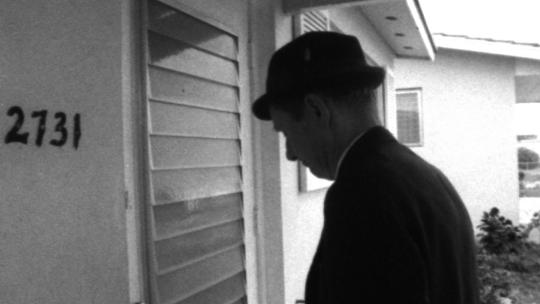
Lastly, a final film that similar to Bicycle Thieves shows realism, is a documentary film called Salesman (1969) directed by The Maysles Brothers and Charlotte Zwerin. This documentary was made after World War II in the 1960s, set in the 1960s. It takes place in New England, Florida, and Chicago and follows four Bible salesmen, specifically one who struggles to keep up with his Bible sales compared to the other salesman. The main lesson of the documentary is human desperation and self-doubt when relating to capitalism. A quote that is straight from the directors of the film states, “Some people say that the audience won’t sit through a long documentary, because it is not emotionally involving,” says Dave. “But we think that, properly done, this kind of film can be the most emotionally involving. We wish to show people living their own lives and speaking their own thoughts with a minimum of structuring of events by the film emotionally involving. We wish to show people living their own lives and speaking their own thoughts with a minimum of structuring of events by the filmmaker.” (page 19). This is important because it shows a real story with authenticity happening from actual people and not actors. Although the topic of this documentary might seem strange to some people, it is emotional with how it shows human desperation and self-doubt, which is such a unique look on a sales job.
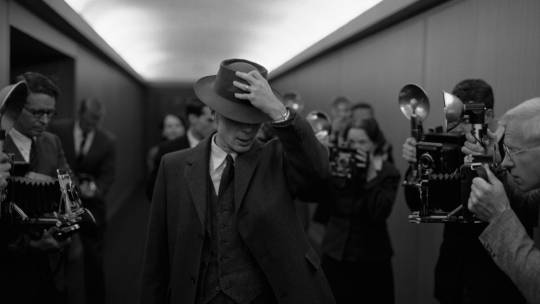
When relating Italian neorealism, documentary, and technological advances within cinema, a specific film comes to mind that combines all of these changes in cinema into one. That film is Oppenheimer (2023) directed by Christopher Nolan. Oppenheimer fits realism, documentary, and technicolor into one film. For realism, Oppenheimer followed the biography of “American Prometheus” based on Oppenheimer’s life. For the documentary, Oppenheimer is a biopic that depicts a real person and a real historical event that happened. For technicolor and widescreen, Oppenheimer uses special technology that has never been done before. Nolan made this film on 70mm IMAX and uses black and white as well as scenes in color to differentiate between subjective and objective perspectives. Oppenheimer also has no CGI and therefore creates all of its effects through real-life recreations. Oppenheimer is one of the most different films out there because it combines all of these elements, not to mention the fact that this film is literally about a historical event from World War II, the whole reason Italian neorealism, documentary, and technological advances such as widescreen and technicolor even happened in the first place. This film is probably one of the best films for a myriad of reasons and combines all of these changes within cinema into this one film, which is a masterpiece in itself.
Sources:
Bondanella, Peter. “Three Neorealist Classics by Vittorio De Sica” Vittorio De Sica, 2000, pp. 172-179, https://doi.org/10.3138/9781442683136-016.
Haleff, Maxine. The Maysles Brothers and “Direct Cinema”.
SCHRADER, PAUL, and Robert Brink. “WIDESCREEN.” Film Comment, vol. 51, no. 5, 2015, pp. 62–65. JSTOR, http://www.jstor.org/stable/43577950.
0 notes
Text
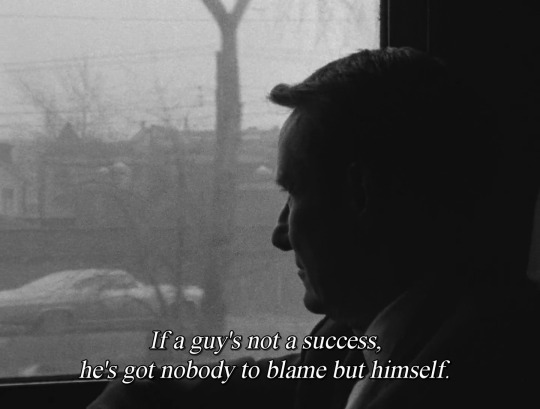
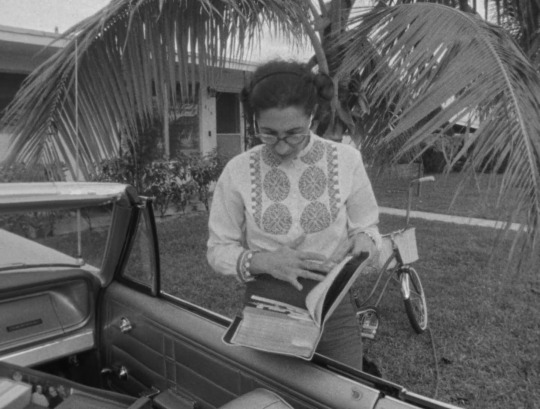
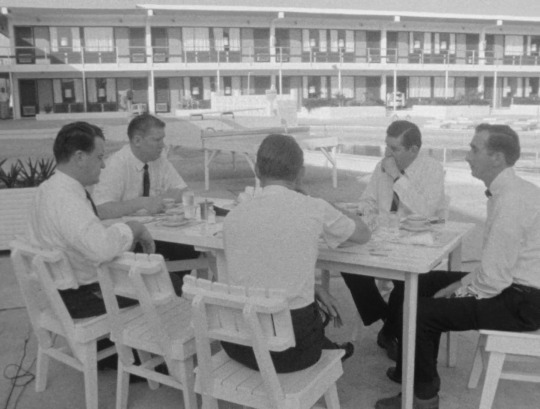
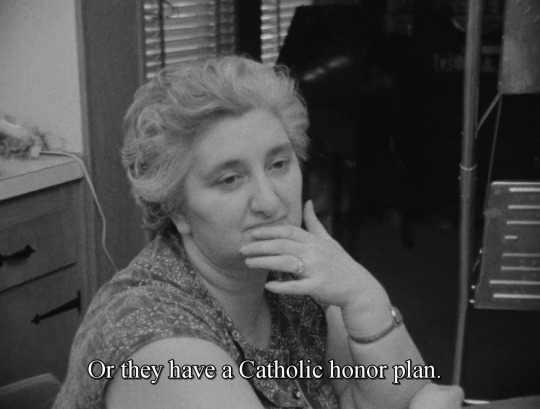
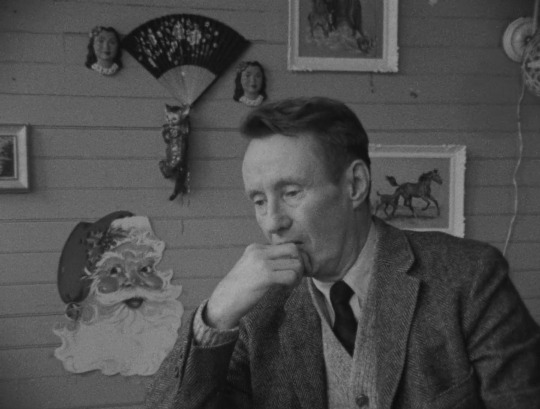
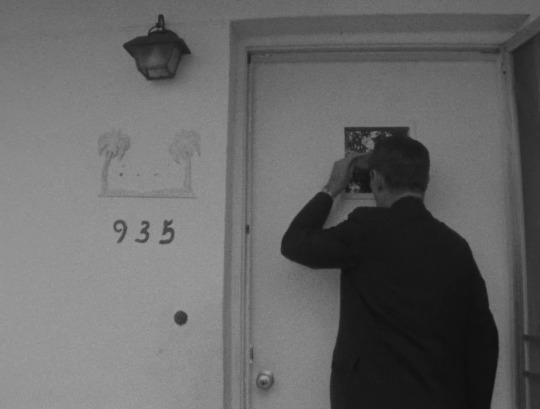
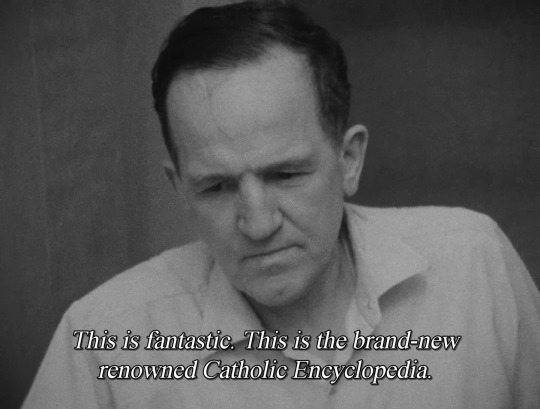
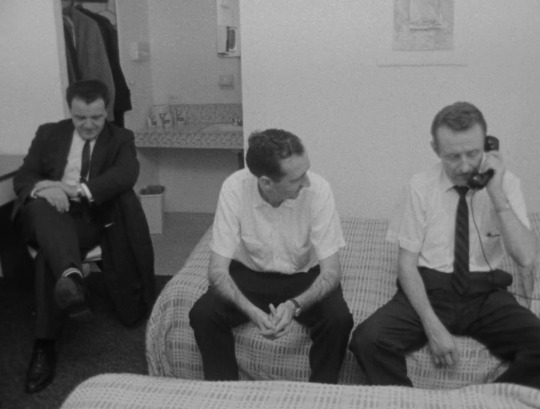
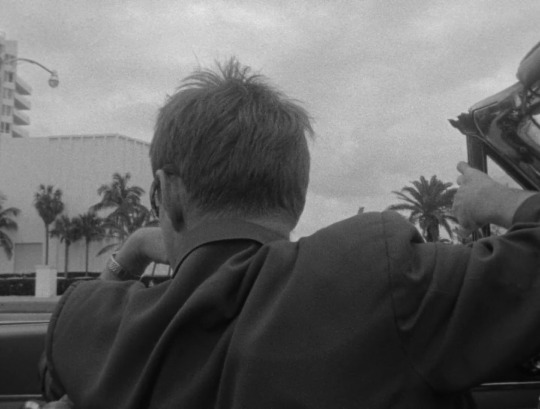
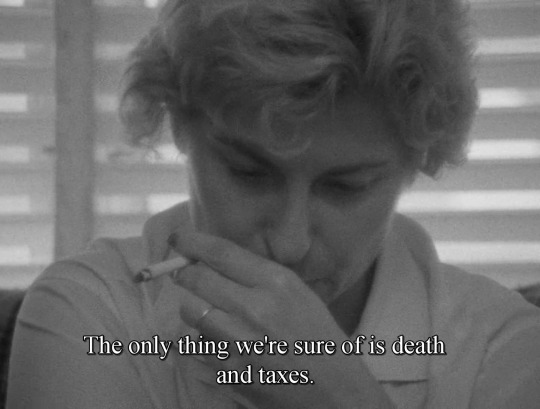
Salesman (Albert Maysles, David Maysles, Charlotte Zwerin, 1969)
#films watched in 2023#Salesman#Albert Maysles#Maysles#David Maysles#Charlotte Zwerin#documentary#religion#Maysles Brothers#1969#quote#bible#black and white#siete#death#catholic#book#jesus christ
83 notes
·
View notes
Text

Gimme Shelter (1970, Albert and David Maysles/Charlotte Zwerin, USA)
15 notes
·
View notes
Photo
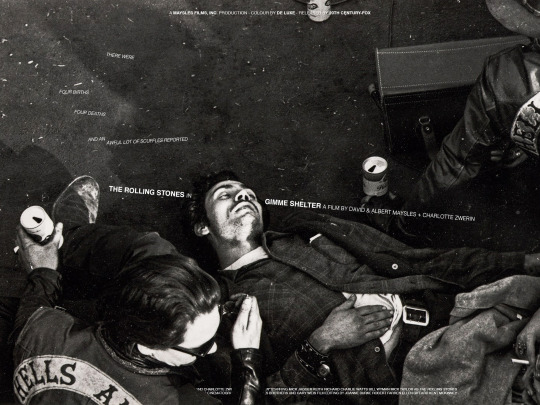
#gimme shelter#maysles brothers#charlotte zwerin#the rolling stones#mick jagger#keith richards#film#movie#poster#1970#altamont
15 notes
·
View notes
Photo
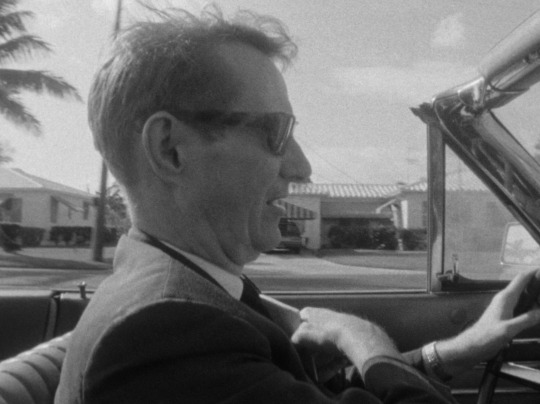
Salesman | Albert and David Maysles & Charlotte Zwerin | 1969
18 notes
·
View notes
Photo
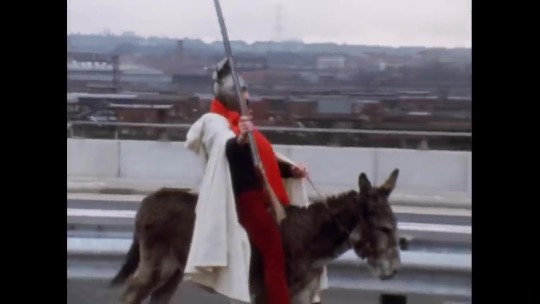
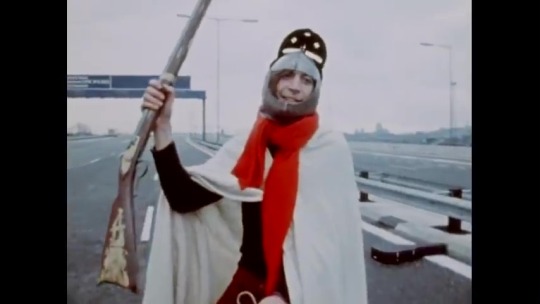
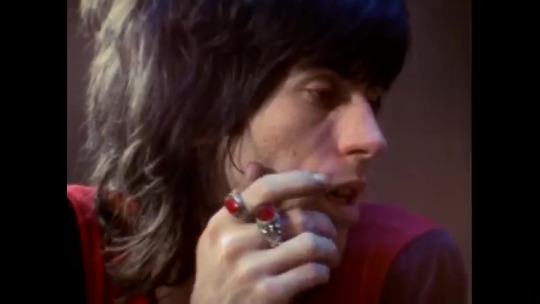
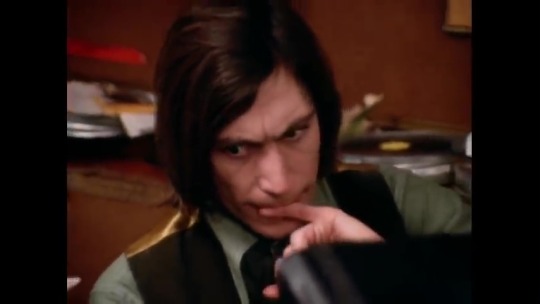
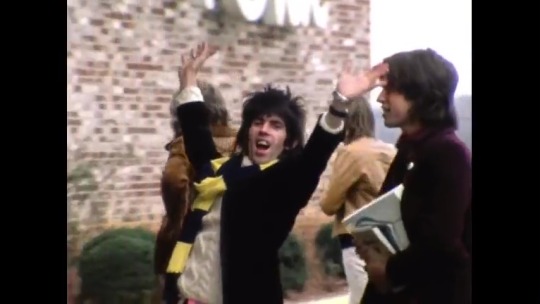
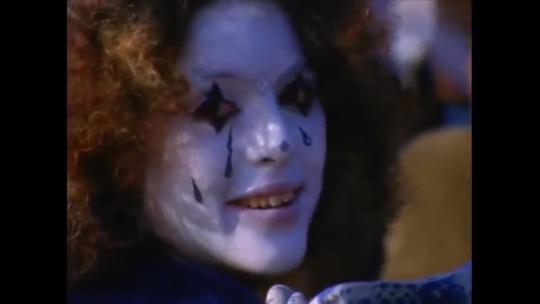
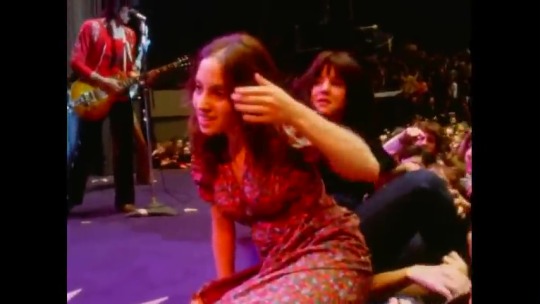
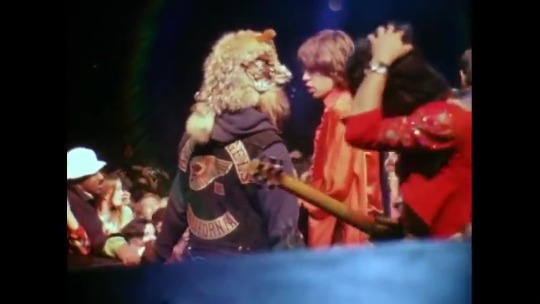
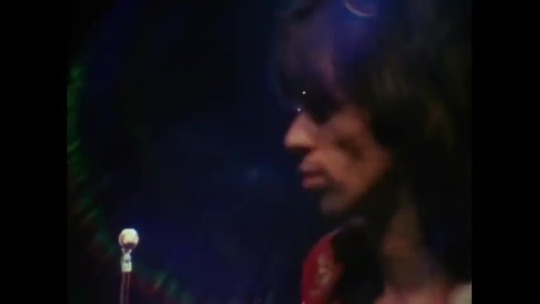

gimme shelter (us, maysles/maysles 70)
#gimme shelter#albert maysles#david maysles#the rolling stones#keith richard#charlie watts#charlotte zwerin
8 notes
·
View notes